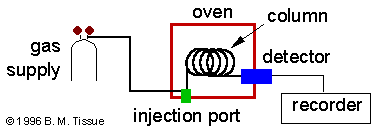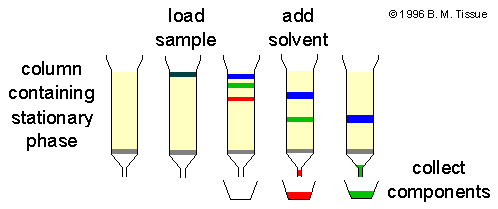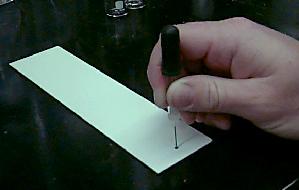What is Chromatography?
- A method of separating and analyzing mixtures of chemicals. [SEMATECH]
- The separation, especially of closely related compounds, by allowing a solution or mixture to seep through an adsorbent (such as clay, gel, or paper) so each compound becomes adsorbed into a separate, often colored, layer. [ASTM E375]

A wide variety of chromatography techniques have been developed to allow mixed substances to be separated. For example:
Gas Chromatography
Gas chromatography can be used to separate mixtures of volatile organic compounds. A gas chromatograph consists of a flowing mobile phase, an injection port, a separation column containing the stationary phase, a detector, and a data recording system.

Read more about gas chromatography.
Liquid Chromatography
Liquid chromatography (LC) is useful for separating mixtures of ions or molecules that are dissolved in a solvent.

Read more about liquid chromatography.
Thin Layer Chromatography
Thin-layer chromatography (TLC) is useful for separating mixtures of organic compounds. Because of the simplicity and rapidity of TLC, it is often used to monitor the progress of organic reactions and to check the purity of products.
Read more about thin-layer chromatography.